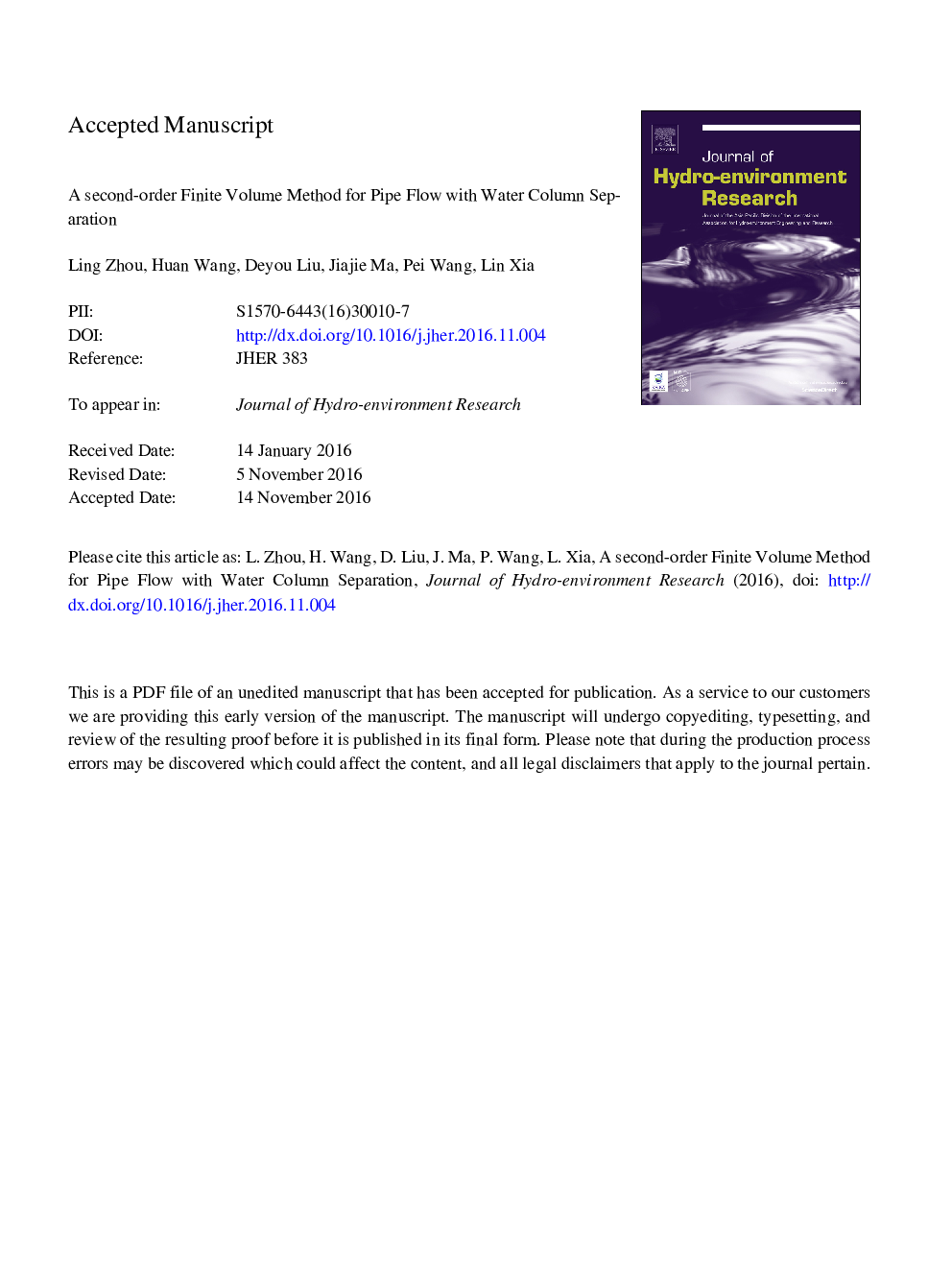| Article ID | Journal | Published Year | Pages | File Type |
|---|---|---|---|---|
| 8875496 | Journal of Hydro-environment Research | 2017 | 38 Pages |
Abstract
A second-order explicit Finite Volume Method (FVM) based on Godunov-type schemes is presented and applied to water column separation (WCS) in pipelines. The treatment of two-phase fluid in the model is similar to the ideas of the classic discrete vapor cavity model (DVCM) based on method of characteristics (MOC). The challenge in using the FVM is how to capture vapor cavities and predict their growth and collapse. The FVM introduced here assumes the vaporous cavity is concentrated at the middle of control volume, and divides the local control volume into two equal halves, in order to calculate the vapor cavity volume. The proposed model is based on the exact Reimann solution of the coupled continuity and momentum equations, and second-order accuracy is achieved by means of data reconstruction based on slope limiter, an approach which prevents the development of spurious oscillations near in the vicinity of high gradients. Predictions of FVM-DVCM for transient pressures caused by WCS and rejoining are compared to published experimental data and to numerical results from the classic DVCM. Pressure results from FVM-DVCM show considerably better agreement with experimental data and significantly avoid unrealistic artificial spikiness with finer grids.
Related Topics
Life Sciences
Agricultural and Biological Sciences
Agricultural and Biological Sciences (General)
Authors
Ling Zhou, Huan Wang, Deyou Liu, Jiajie Ma, Pei Wang, Lin Xia,
